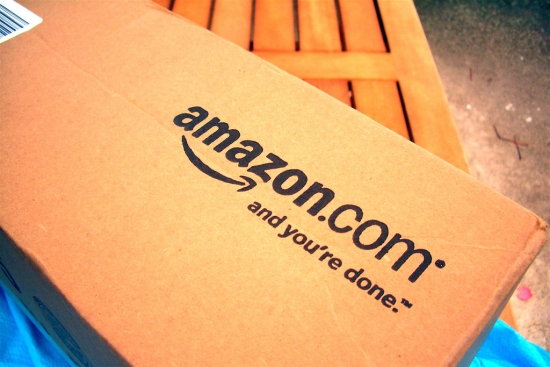With the advent of online shopping, traditional high street retailers came under attack from a new generation of rivals. Consumers can now order games, DVDs and CDs from the comfort of their own homes rather than trek around the shops, with their purchases being delivered to their front door only days later. As well as offering a more comfortable method of shopping, online retailers can often afford to sell new releases for a lower price – something that, in the current economic climate, commercial property based retailers can little afford to do.
Earlier this year, the once popular GAME Group succumbed to the pressure of competing against technological rivals such as Amazon and play.com, with the chain of stores being placed under administration by owners. Now it appears that struggling entertainment firm HMV could go the same way unless drastic steps to save the chain can be taken over the Christmas trading period.

HMV is struggling to compete with online rivals like Amazon
Shares in HMV plummeted by 37 per cent on Thursday after newly appointed chief executive Trevor Moore warned there is a high possibility that the business will not meet its full year profit targets in April. Unfortunately, this poses a significant problem for the chain as it means the likelihood of meeting the terms of their bank loans in January and April is low.
HMV’s 238 nationwide stores failed to attract consumers for the large part in the 26 weeks to October 27th, with like for like sales falling 10.2 per cent in the period. However, pre-tax losses only dipped to £36.1 million, compared to the huge £50.1 million loss during the same period in 2011.
According to sources at HMV, the chain was hit badly by the Olympic and Paralympic Games, as many suppliers chose to hold off high visibility product launches until after the sporting events concluded. As a result, the business has been relying on promotional sales such as ‘2 for £15’ offers on CDs and ‘5 for £30’ on Blu-Rays in order to keep ticking over.
This latest blow to the high street retailer will also be disappointing for suppliers, who have supposedly channelled over £40 million of financial aid into the chain to help cut down the mountain of debt. Online shopping has had a negative effect upon both the film and music industries, meaning that one of the only specialist entertainment chains left in the UK has the backing of many producers and studios around the world.
Sales trader Will Hedden of IG believes that suppliers will begin to question the feasibility of keeping HMV on the high streets with the continual stream of losses and debt piling up.
He says; “Iconic high street retailer HMV continues to struggle to avoid being consigned to the history books, reporting falling sales, further losses, and the probable breach of banking covenants in January.
“Investors have come to the aid of many retailers throughout the downturn, but I wonder how long they can keep propping up a company that continues to struggle against the inevitable trend towards online retail.”
It is true that HMV owes a large part of its present survival to suppliers and investors, yet management at the chain have also attempted to eat into the debt acquired by the group through the selling of assets.
As well as closing a large number of stores which continually failed to make a profit, the group made the decision to sell off book brand Waterstones in order to focus on the music and media branch of trading. It also sold its music venue, the Hammersmith Apollo, for £32 million in order to be able to agree terms with its banks.
Yet there is a ray of hope left for those struggling to keep HMV afloat – its market share is on the rise after months of steadily dropping. In the physical music market, which measures the sale of CDs, records and cassettes, the retailer now holds a 38 per cent share. Meanwhile, it has increased its share in the physical visual market, which monitors DVDs and Blu-Rays, to 27 per cent.
Mr Moore insisted that the group will remain fighting in the tough economic conditions.
He said; “It’s been a tough first half but we’ve reduced losses and in a difficult market we’ve continued to grow share.”
He also insisted that future store closures or succumbing to administration is “not part of our plan.”
Do you think HMV has any chance of survival when faced with rivals such as Amazon and play.com, or should management simply cut their losses and attempt to pay back as much debt as possible before an inevitable period of administration arrives? Should HMV take the battle against online retailers to the internet – perhaps by introducing a “click and collect” service or offering in store vouchers for purchases made on their website?